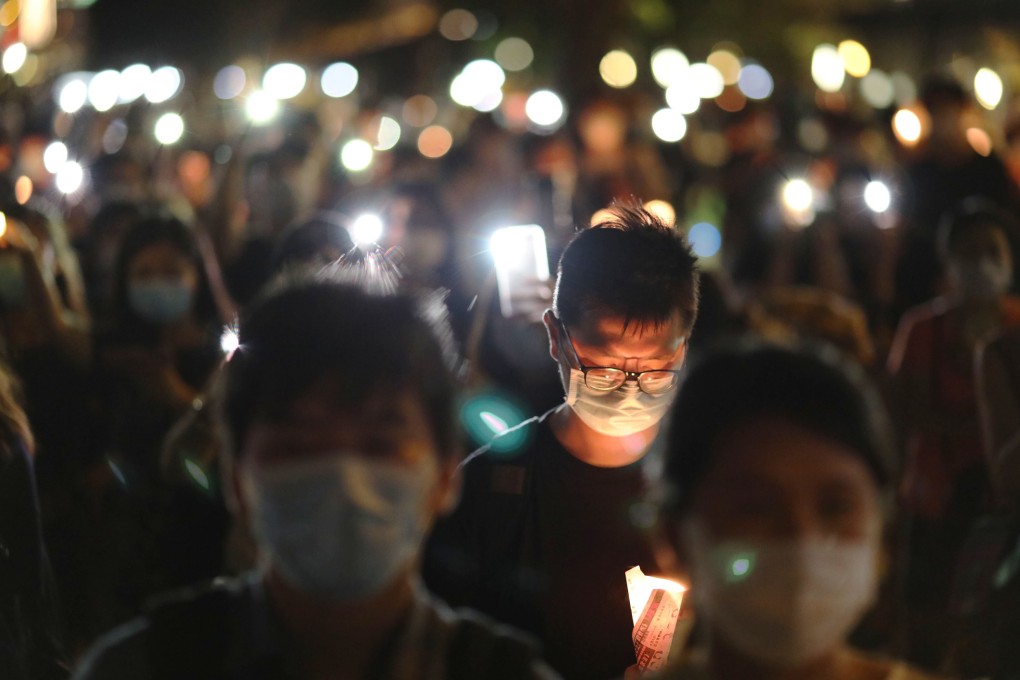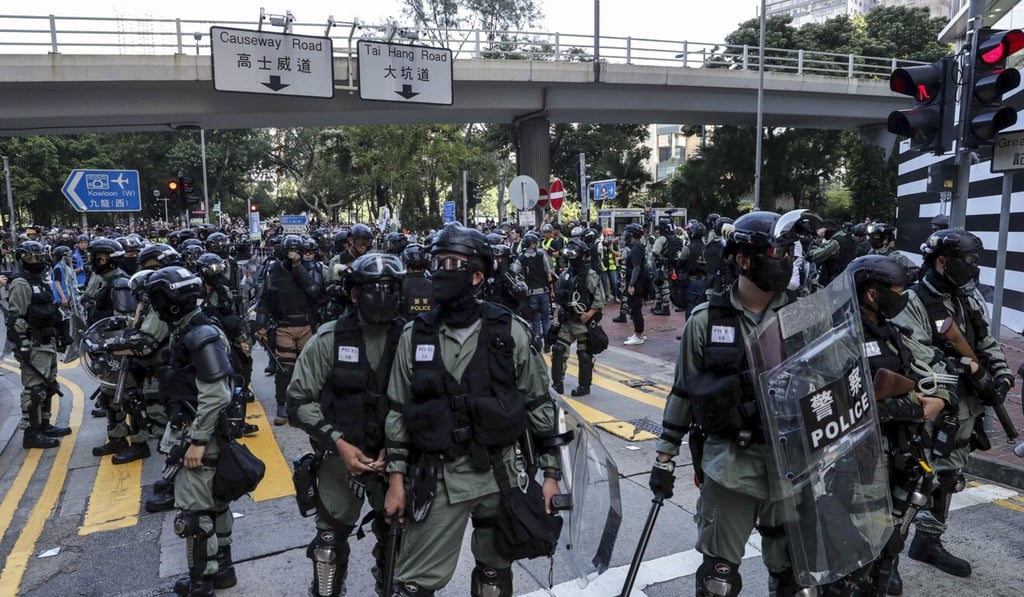Advertisement
Tiananmen vigil: Hong Kong police to put 3,000 anti-riot officers on standby, promising swift action against any unauthorised June 4 gatherings
- Members of Police Tactical Unit to conduct stop-and-search checks near Victoria Park where annual candlelight vigil is traditionally held
- Force to also have increased presence near June 4 museum where people can lay flowers in memory of those killed in Tiananmen Square in 1989
Reading Time:4 minutes
Why you can trust SCMP
84

Police plan to have more than 3,000 anti-riot officers in reserve to stop any possible unauthorised gatherings on Friday, force insiders have warned, following the banning of Hong Kong’s annual June 4 vigil.
Organisers of the annual candlelight vigil to commemorate the Tiananmen Square crackdown in 1989 previously lost an appeal to hold this year’s gathering in Victoria Park, with authorities citing Covid-19 restrictions for the second year in a row.
It would be the force’s largest deployment of officers to deal with any potential trouble this year.
Advertisement
The Hong Kong Alliance in Support of Patriotic Democratic Movements of China said it would drop calls for people to show up at the park, and unlike in 2020 would not run a ceremony online this year.
The alliance told the Post it was concerned police would accuse those watching the live broadcast together of sharing a “common purpose” and arrest them for unauthorised assembly. The law defines a public procession as one organised for a common purpose which takes place in, to, or from a public place.
Advertisement

Advertisement
Select Voice
Choose your listening speed
Get through articles 2x faster
1.25x
250 WPM
Slow
Average
Fast
1.25x